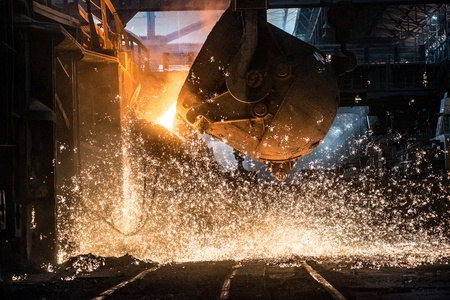At R.G. Smith Company, we have vast experience in many areas of industrial sheet metal fabrication, including our efforts with refractory metals. You may have heard the term before, but do you know what it means? What are refractory metals and how are they used to improve the tools and machines that we use every day? Read on and see what these special metals can do.
What Are Refractory Metals?
In a nutshell, refractory metals have special characteristics that make them more durable and resistant than other more standard metals. This includes having a very high melting point – as high as 6,170 degrees F! – high resistance to corrosion, good heat and electricity conduction and much more, notes PICK PM.
 Benefits of Refractory Metals
Benefits of Refractory Metals
The unique and positive characteristics of refractory metals are almost endless. They have a very high tolerance for use in high-temperature situations, making them a popular and reliable choice for use in aircraft applications. It is also why they are commonly used to process other molten metals or glass. They also have very high density, making them ideal weights for precision ballasts or, more commercially, as golf club head weights.
More resistant to wear and tear than standard metals, refractory metals are made in such a way that they are more resistant to corrosion, as well as being extremely resistant to wear and abrasion, which is perfect for extending the life of seals, nozzles and valve seats.
These metals also have excellent heat and electricity conducting properties, an exceptional level of hardness, and a high resistance to thermal shock, in addition to many other impressive qualities.
What Makes Up this Family of Metals?
There are five primary metals that compromise the refractory family. They are tungsten, molybdenum, niobium (sometimes referred to as columbium), tantalum and rhenium.
Each of these metals has their own particular benefits and uses. Due to having the highest melting point, tungsten is often utilized in the manufacturing of heating trays and radiation shields and is employed in the process of welding electrodes.
Molybdenum is a durable metal, so it creates higher resistance for stainless steels. Niobium has a broad range of properties so it can be used for everything from nuclear applications to the creation of low-alloy steels.
Tantalum is often found with niobium, and is frequently used to make corrosion-resistant chemical equipment. Finally, rhenium has a very high density and melting point, making it ideal for pairing with the other refractory metals.
At R.G. Smith Company, we have been working with refractory metals for years. We offer many refractory services and have been part of many refractory construction projects, so we know the properties of these unique metals and the best way to work with them. Our services range from total rebuilds and demolitions to shotcrete installation and making precast shapes or burner blocks for furnaces.
If you have a refractory construction project planned, and you want to work with the best, give us a call at our Canton office at 330-456-3415 or in Mansfield at 419-524-4778 today.


Leave a Reply